Australia/Israel Review
The parties and their prospects
Oct 26, 2022 | AIJAC staff, BICOM

Positions on the key political and security issues by party
(Note: Numbers below based on aggregated polling as of Oct. 14)
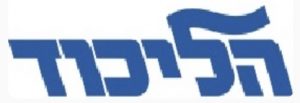 Likud
Likud
Party Leader: Binyamin Netanyahu
Affiliation/Ideology: Centre-right
Mode of Selecting Party List: Primary vote by party members
Current Seats: 30
Projected Seats: 32
Following Binyamin Netanyahu at the top of Likud list are many of his loyalists. Yariv Levin, a trusted Netanyahu confidant, is second, followed by Eli Cohen and Yoav Galant, both former ministers who merged with Likud from Moshe Kahlon’s Kulanu (“All of Us”) party in 2019. Filling the next three slots are outspoken supporters of Netanyahu: David Amsalem, Amir Ohana and Yoav Kish. Meanwhile, those who had challenged Netanyahu for the leadership – or were perceived to have leadership ambitions – came further down the list in the Likud primaries. Israel Katz, the former Finance Minister, and Yuli Edelstein, the former Knesset Speaker, have consistently been placed in the top five over the last two decades, but fell to 12 and 18 respectively.
Netanyahu was able to place three individuals in reserved slots 14, 16 and 28. He chose two former Yamina “Rightwards” party MKs, Amichai Chikli and Idit Silman, who had helped topple the Bennett-Lapid Government. He also chose Moshe Saada, the former deputy head of the Justice Ministry’s Police Internal Investigations Department. Saada had made allegations against top members of the country’s legal establishment, who he claimed ignored misconduct by the then-police chief due to fears it would damage efforts to prosecute Netanyahu. There has been some criticism within some Likud quarters that Saada was chosen over a female representative or a Druze or Ethiopian candidate.
 Yesh Atid (“There is a future”)
Yesh Atid (“There is a future”)
Party Leader: Yair Lapid
Affiliation/Ideology: Centrist and Secularist, anti-Netanyahu
Mode of Selecting Party List: Party leader selects
Current Seats: 17
Projected Seats: 24
The first 12 spots on Yesh Atid’s slate are the same as the previous election, with three women, Orna Barbivai, Karine Elharrar and Meirav Cohen, in the top five places. In 13th spot is Michal Shir who joined the party from Gideon Saar’s New Hope. Muslim activist Muhammad “Shoko” Elhega, who runs the party’s outreach to Arab voters, is placed in 29th spot. The fact that the party does not conduct primaries means Lapid can ensure that his list includes women, minorities and a regional spread.
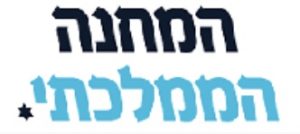 The National Unity Party
The National Unity Party
Party Leaders: Benny Gantz and Gideon Saar
Affiliation/Ideology: Centrist, anti-Netanyahu
Mode of Selecting Party List: Party leaders select
Current Seats: 8 for Gantz’s Blue and White; 6 for Sa’ar’s New Hope
Projected Seats: 12
The National Unity Party’s list represents a merger of Gantz’s Blue and White party and Gideon Saar’s New Hope. Saar described the joint venture as the embodiment of the “stately right and security centre” while Gantz said the merger had the potential of extricating Israel from its ongoing political stalemate. The party is hoping that if another political stalemate occurs, the ultra-Orthodox parties may be persuaded to leave the Netanyahu camp and support Gantz for Prime Minister.
Gantz and Saar succeeded in bringing in former IDF Chief of Staff Gadi Eisenkot, who was considered the star candidate to jump into politics before these elections. Eisenkot will be placed third on the slate The rest of the top ten include Pnina Tamano-Shata, Yifat Shasha-Biton, Chili Tropper, Zeev Elkin, Michael Biton, Matan Kahana (formerly of the Yamina party) and Orit Farkash-Hacohen. The merged party is currently polling at less than the sum of its parts. Blue and White had eight seats in the previous Knesset while New Hope received six.
Eisenkot has recently made comments stating the importance of Israel separating from the Palestinians. He described politicians wishing to restore Israel’s occupation of Gaza as seeking to “create an irreversible situation, that will lead to catastrophe.” He has also called for the country to take active steps to prevent what he termed the dangerous development of a bi-national state. It is unclear how these comments will go down with the more right-wing senior members of the party such as Saar and Zeev Elkin, as well as the National Unity Party’s attempts to woo votes within the moderate right-wing.
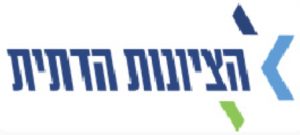 Religious Zionism Party
Religious Zionism Party
Party Leaders: Bezalel Smotrich and Itamar Ben Gvir
Affiliation/Ideology: Right-wing and nationalistic, pro-settler, pro-Netanyahu
Mode of Selecting Party List: National Union component has primaries, Jewish Power component list selected by the leader
Current Seats: 6
Projected Seats: 13
The Religious Zionist party is a union between the National Union, Jewish Power, and Noam (“Pleasant”) parties. Noam is a small nationalist-religious party whose main focus is condemning LGBTIQ+ influence and same-sex marriage, while the other two are right-wing nationalists and pro-settler, with Jewish Power considered the more extreme (for more on Jewish Power, see p. 18). National Union and Jewish Power each have five representatives in the first ten slots with Avi Maoz of Noam in the 11th slot. Having initially all decided to run separately, the three parties were encouraged to run together by Netanyahu who feared right-wing votes ‘going to waste’ if any of the parties failed to cross the 3.25% electoral threshold.
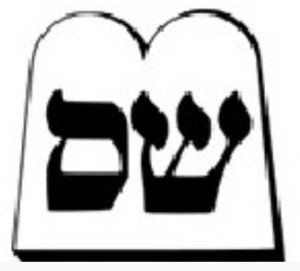 Shas
Shas
Party Leaders: Aryeh Deri
Affiliation/Ideology: Ultra-Orthodox and Sephardic, pro-Netanyahu
Mode of Selecting Party List: Religious Council
Current Seats: 8
Projected Seats: 8
Shas is a party representing the interests of ultra-Orthodox Jews of Sephardic or Middle Eastern descent. It continues to be led by Aryeh Deri and the party’s top ten remain the same as in the previous election.
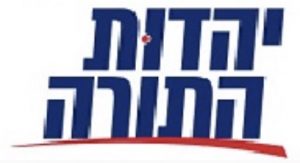 United Torah Judaism
United Torah Judaism
Party Leaders: Moshe Gafni (Degel HaTorah) & Yitzchak Goldknopf (Agudat Yisrael)
Affiliation/Ideology: Ultra-Orthodox and Ashkenazi, pro-Netanyahu
Mode of Selecting Party List: Religious Council
Current Seats: 7
Projected Seats: 7
UTJ’s two constituent factions, Degel Hatorah and Agudat Yisrael, representing different European (“Ashkenazi”) ultra-Orthodox traditions, had been at odds over who would lead the party before an agreement between them was consolidated by Netanyahu. Netanyahu agreed to fund ultra-Orthodox schools in Israel regardless of whether they meet state standards and teach a core secular curriculum should he return to power. Degel Hatorah head Moshe Gafni described the previous lack of full state funding for ultra-Orthodox schools refusing to teach core subjects as “unwarranted discrimination… For me, it’s signed and sealed.” He added, “we will not enter any coalition without this discrimination being dealt with and the salaries of teachers in Haredi schools being put on equal footing as the general school system.” This deal may have ended the hopes of Gantz and Saar that the ultra-Orthodox parties would join a coalition headed by Gantz in the case of political deadlock. The UTJ list is led by Yitzchak Goldknopf, an educator and political novice who was picked by the party’s rabbinical overseers to lead the Agudat Yisrael party (in a move that angered Gafni). Following Goldknopf is Gafni of Degel HaTorah.
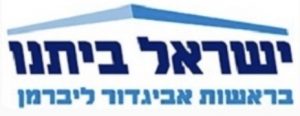 Yisrael Beitenu (“Israel is our Home”)
Yisrael Beitenu (“Israel is our Home”)
Party Leader: Avigdor Lieberman
Affiliation/Ideology: Nationalist and secularist, appealing mainly to Israelis from the former USSR, anti-Netanyahu
Mode of Selecting Party List: Party leader selects
Current Seats: 7
Projected Seats: 5
The first seven places on the Yisrael Beitenu list are the same as the previous election apart from Sharon Nir in fourth place, who replaced Eli Avidar, who has formed his own party. Nir is a retired Brigadier General in the IDF and was the first woman to be appointed to the position of commander of the National Cyber Defence School. She also served as an advisor to the Chief of Staff on gender issues. The top candidates on the list include Avigdor Lieberman, Oded Forer, Evgeny Sova, Sharon Nir, Yulia Malinovsky, Druze candidate Hamad Amar and Alix Kushnir.
 Labor Party
Labor Party
Party Leader: Merav Michaeli
Affiliation/Ideology: Left-wing, dovish on Israeli-Palestinian issues, anti-Netanyahu
Mode of Selecting Party List: Primary vote by party members
Current Seats: 7
Projected Seats: 5
Merav Michaeli is followed in the Labor list by Naama Lazimi, a 36-year-old politician with limited public exposure, known as a campaigner on social issues and the cost of living. In other realistic slots are Rabbi Gilad Kariv, who represents the interests of reform and progressive Judaism and chaired the Knesset’s Constitution, Law and Justice Committee; Efrat Rayten, chair of the Labour and Welfare Committee in the Knesset as well as Ram Shefa and Emilie Moatti, both young politicians who were elected in 2021 for the first time with Labor. Two party veterans, ministers Omer Bar-Lev and Nachman Shai, came in unrealistic slots in the party primaries. Michaeli consistently rejected suggestions by Yair Lapid to merge her list with Meretz.
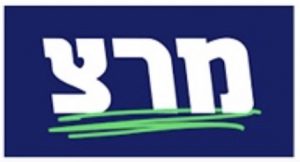 Meretz
Meretz
Party Leader: Zehava Galon
Affiliation/Ideology: Left-wing, dovish on Israeli-Palestinian issues, anti-Netanyahu
Mode of Selecting Party List: Primary vote by party members
Current Seats: 6
Projected Seats: 5
Meretz Party Chairwoman Zehava Galon is followed on the list by Mossi Raz, Michal Rozin, Druze politician Ali Salalha and former IDF Deputy Chief of Staff Yair Golan, who ran against Galon for the leadership. Health Minister Nitzan Horowitz, the former party leader, is seventh on the list and is unlikely to return to the Knesset. Other current Meretz ministers, Esawi Frej and Tamar Zandberg have taken a time out from politics (This means none of Meretz’s current government ministers – the first time the party has had ministers in the last 20 years – will be in the next Knesset). Galon was more open to uniting forces with Labor but when this door was closed, stated that the party would run with “full confidence in the path we have chosen and with pride in the achievements Meretz has made in the framework of the government of change.”
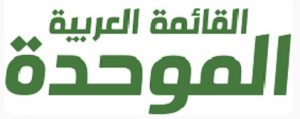 Ra’am (“United Arab List”)
Ra’am (“United Arab List”)
Leader: Mansour Abbas
Affiliation/Ideology: Islamist
Mode of Selecting List: Religious Council
Current Seats: 4
Projected Seats: 4
Mansour Abbas will hope that voters reward the party for his decision to support the Bennett-Lapid Government. The November 2021 budget approved billions of shekels for programmes for Arab society which aimed to address healthcare, social welfare, education and high-tech, but not all of this money filtered through to residents. Ra’am officials are also deeply troubled by the potential impact the splintering of the Joint List might have. Internal polling points to a certain loss of support for the UAL among former voters who have now shifted their support to Balad. Abbas is followed on the party’s list by Walid Taha, the former number three in the previous elections, Waleed Alhawashla, Iman Khatib-Yasin, the former number five who was the first hijab-wearing woman elected to the Knesset, and Yasser Hujirat.
 Joint List/ Hadash-Ta’al
Joint List/ Hadash-Ta’al
Leaders: Ayman Odeh & Ahmad Tibi
Affiliation/Ideology: Communist/Palestinian Nationalist
Mode of Selecting List: via electoral council
Current Seats: 6 as part of the Joint List comprising Hadash, Taal and Balad
Projected Seats: 4
Following the dissolution of the Joint List with Balad, this slate is headed by Hadash leader Ayman Odeh followed by Taal leader Ahmed Tibi. Current Hadash MKs are Aida Touma-Sliman in third and Ofer Cassif in fourth, with former Hadash MK Youssef Atauna in fifth. Tibi said that they had wanted to maintain the Joint List with Balad out of a sense of public responsibility, but regrettably it was not possible, adding that “Now our mission is to win the confidence of the Arab public and of the Jews who want democracy.”
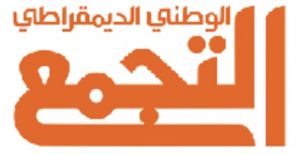 Balad (“National Democratic Alliance”)
Balad (“National Democratic Alliance”)
Leader: Sami Abu Shehadeh
Affiliation/Ideology: Palestinian Nationalist and strongly anti-Zionist
Mode of Selecting List: By committee
Current Seats: 6 as part of the Joint List comprising Hadash, Taal and Balad
Projected Seats: 0
Balad continues to blame collusion between Yesh Atid, Hadash and Taal for the dissolution of the Joint List. Balad’s first five candidates are leader Sami Abu Shehadeh, Mtanes Shehadeh, the former chairman, Doaa H’osh, Walid Kaadan and Mahasin Qais. The party is believed to currently have the support of between 20,000 – 40,000 people, far short of what it would need to reach the electoral threshold. Members of the Joint List have called on Balad to withdraw from the race if they have little chance of passing the electoral threshold. Ahmad Tibi said that while he did not mean to tell others what to do, he hoped everyone would act responsibly so as not to harm Arab representation. Tibi said he refrained from running in a past election, in 1996, because he “saw there was no chance [of passing the threshold].” But Balad did not respond despite its poor polling.
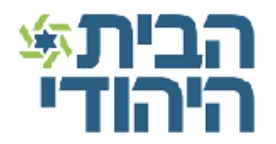 Jewish Home (“HaBayit HaYehudi”)
Jewish Home (“HaBayit HaYehudi”)
Leader: Ayelet Shaked
Affiliation/Ideology: Right-wing nationalist, pro-settler, open to joining Netanyahu government
Mode of Selecting List: By committee
Current Seats: 7, as the Yamina party
Projected Seats: 0
Shortly before the deadline for registering electoral lists in September, Interior Minister Ayelet Shaked of Yamina signed an agreement with the national-religious Jewish Home party (which failed to get into the previous Knesset) to run jointly in the upcoming general election under the latter name. Shaked will head the list and will be followed by Givat Shmuel Mayor Yossi Brodny, the Jewish Home chairman. A Yamina candidate, Amitai Porat, holds the third slot on the list, and a Jewish Home candidate, Nitsana Darshan-Leitner, is fourth. The fifth slot is held by former Yamina MK Yomtob Kalfon. Shaked said she was pleased “we succeeded in rebuilding a home for the religious Zionists and the responsible right in Israel” adding that the party would “act together to form a broad and stable right-wing government.” However, Shaked’s party will likely struggle to pass the electoral threshold. The right-wing has not forgiven her for joining Naftali Bennett in the ‘Government of Change’ with Yair Lapid, Mansour Abbas and others. Centrist and left-wing voters, meanwhile, are put off by Shaked’s right-wing positions on several issues.






